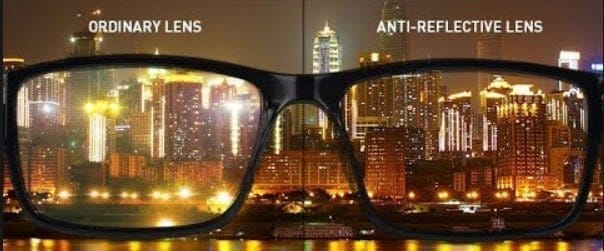Driving at night is more dangerous, and with the days getting shorter in winter, people with night vision problems are at risk of accidents compared to the daytime. Struggling to see at night is fairly common, but a lot of people don’t seek out solutions, which can be dangerous, especially while driving. Some have considerable difficulty seeing at night or in dim lighting. This is called night blindness or nyctalopia.
What Is Night Blindness?
It’s not surprising that people can’t see as well in the dark however, some experience noticeable vision loss at night or in dim lighting. Night blindness isn’t a disease itself, but a symptom from other vision problems. Some eye conditions that can cause night blindness include myopia (nearsightedness), cataracts, glaucoma, diabetes and even vitamin A deficiency.
Night Vision Loss Symptoms
Night vision and day vision are different. When it’s dark, your eyes are basically colorblind. The eye can only see a fraction of what you can normally see in daylight, making it harder to see stationary objects. However, if you’re experiencing the following symptoms or concerned with any part of your visual acuity at night, consult your eye doctor for the best possible treatment. You can learn more about night blindness here.
- Blurred vision at night
- light halos from streetlights and headlights
- light sensitivity
Tips for Safe Driving at Night
- Never look directly at oncoming vehicle lights. If lights seem too brights, try to focus on lane markers until the vehicle passes.
- Clean the outside and inside of your windshield to reduce glare. A streaky windshield causes light to scatter, which causes glare and decreased visibility.
- Turn off interior cabin lights and dim dashboard to also minimize glare at night.
- Slow down! It seems like an obvious detail, but give yourself time to react to weather conditions and overall decreased visibility.
- Remember to blink. The harder we concentrate the frequency of blinking tends to go down. Less blinking can cause dry eye symptoms. This is especially more common with contact lenses. Aiming air vents away from the face can also help avoid dry eyes.
- See your eye doctor! Sometimes prescription glasses are required for safe night driving. Getting your vision checked annually so your eye doctor can detect any vision issues early. Just because some might not need glasses during the day, some require a pair of glasses for night time use.
Benefits of Anti-Reflective Lenses
For glasses wearers, clean lenses are imperative for clear vision. Anti-reflective (AR) lenses increase visual clarity by reducing glare, giving you better vision behind the wheel. AR coatings also protect your glasses from scratches and smudges, which helps you see clearly but also means you’ll be replacing our lenses less frequently, saving you money. We offer a variety of AR lenses to help you see clearly, no matter what life throws at you.
Take Care Of Your Eyes
Never be in the dark when it comes to your vision health. An annual comprehensive eye exam is the best way to prevent and catch eye issues early. Schedule an eye exam today.




